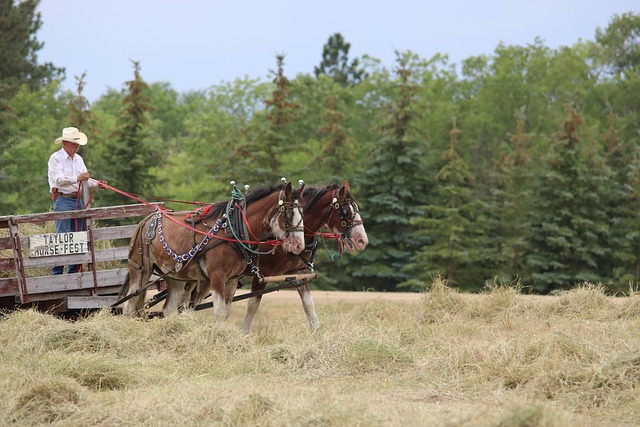Agricultural land, especially ranchal properties, is vital for rural economic stability and community resilience. With fluctuating real estate values, access to fertile farming land ensures livelihoods, fosters cultural heritage, and preserves natural resources. The industry boosts regional economies and drives property values through unique characteristics, supporting local businesses and hosting cultural events. Effective land management and inheritance strategies ensure the long-term viability of family farms and ranches, preserving these traditions for future generations.
In many communities, agricultural and ranching economies form the backbone of family livelihoods. This article explores how vast stretches of land play a crucial role in sustaining families across generations. We delve into the multifaceted benefits of ranching as a resilient source of income and community support, while also examining the impact of real estate trends on the viability of family-run farms and ranches. Understanding these dynamics is essential for fostering the long-term prosperity of rural landscapes.
The Role of Agricultural Land in Sustaining Families' Livelihoods

Agricultural land plays a vital role in sustaining families’ livelihoods, offering more than just a source of food and fiber. In today’s digital era, as real estate values fluctuate, having access to fertile farming land ensures a stable income for many rural households. This land acts as a lifeline, providing opportunities for family-run farms and ranches to thrive, create local jobs, and maintain a rich cultural heritage. The sustainable practices employed on these lands not only nurture the environment but also contribute to the economic stability of communities, fostering a resilient way of life.
Ranching families, in particular, rely on extensive agricultural properties to support their unique lifestyle and business model. These vast expanses of land allow for livestock grazing, crop cultivation, and diverse outdoor pursuits, all of which are integral to the family’s well-being and financial security. The value of such real estate extends beyond monetary measures, as it preserves natural resources, promotes biodiversity, and keeps rural communities vibrant and thriving.
Ranching as a Source of Income and Community Support

Ranching, an integral part of many agricultural economies, plays a vital role in sustaining families and communities. Beyond providing a source of income through livestock sales and ranching activities, it contributes significantly to regional economies. The industry’s impact extends to real estate as well; ranch properties often possess unique characteristics that attract buyers seeking both residential and investment opportunities. These include expansive lands, natural resources, and the potential for recreational uses, making them valuable assets in their own right.
Moreover, ranching fosters a strong sense of community. Local businesses benefit from the economic activity generated by ranchers, creating a cycle of support that strengthens the region’s overall resilience. Events like rodeos, fairs, and agricultural shows bring people together, fostering connections and a shared pride in the area’s heritage and way of life.
Real Estate's Impact on the Viability of Family-Run Farms and Ranches

The value of real estate plays a significant role in shaping the future of family-run farms and ranches. Access to affordable land, along with efficient property management practices, directly impacts the financial viability and sustainability of these operations. Owning or securing prime agricultural and grazing lands allows families to cultivate crops, raise livestock, and diversify their income streams, ensuring their long-term survival in an increasingly competitive market.
Real estate also acts as a crucial asset for intergenerational transfer. Many family farms face challenges when it comes to passing the business on to the next generation due to rising land costs and limited availability. Effective real estate planning, including inheritance strategies and community engagement initiatives, can help preserve these agricultural traditions by ensuring that future generations have access to suitable land for their ventures.






